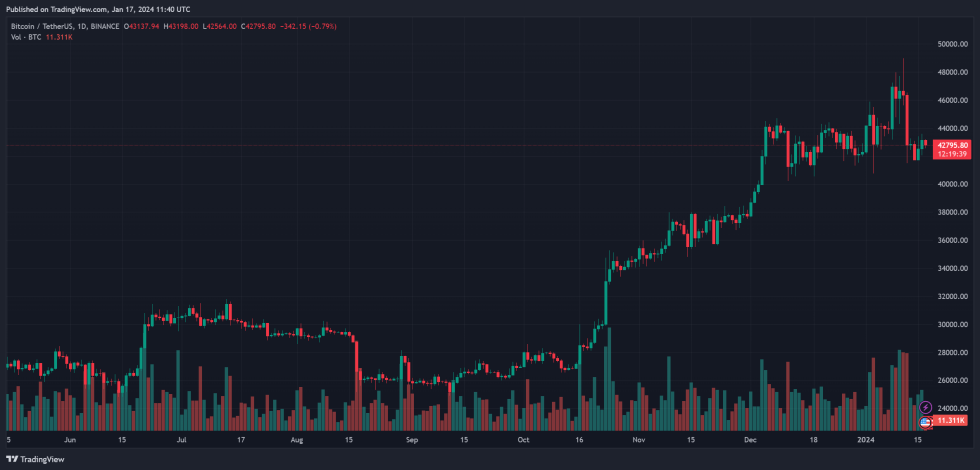- January 17, 2024
- Posted by: admin
- Category: BitCoin, Blockchain, Cryptocurrency, Investments
The collapse of the crypto exchange FTX continues to gain attention due to its legal consequences for its founder, Sam Bankman Fried (SBF), and his family. The crypto founder’s parents were entangled in the legal fallout due to their alleged participation and involvement with the failed company.

FTX Legal Fallout: SBF’s Parents React To Lawsuit
Last year, the FTX’s debtor launched a lawsuit against SBF’s family. Now, Barbara Fried and Alan Joseph Bankman, through their legal representation, have filed a motion to dismiss the adversary complaint against them.
The Defendants argue that the claims, centered on alleged breaches of fiduciary duties and fraudulent transfers, lack “substantive legal ground.” The motion to dismiss revolves around the absence of a fiduciary relationship between Mr. Bankman and the debtor entities.
As per the memorandum, Mr. Bankman’s roles within the entities were not of a nature that would establish such a relationship. The Defendants assert that even if such a duty were assumed, the plaintiffs have “failed to provide substantial evidence of its breach.”
Adding to their defense, the Defendants challenge the aiding and abetting breach of fiduciary duty claims. They contend the plaintiffs have not “convincingly demonstrated an underlying breach of duty.”
Moreover, they argue there’s a lack of evidence showing that they had actual knowledge or intent regarding any alleged breach. According to the document, SBF parents’ legal representation made the following argument in their defense:
The Complaint does not, and cannot plausibly, allege that Mr. Bankman was ever an actual director, officer, or manager of any Debtor entity. Even if Plaintiffs had plausibly alleged a fiduciary duty, they have not adequately pleaded a breach thereof.
Legal Argument Focuses On Insufficiency Of Plaintiffs’ Claims
The motion also disputes the claims of actual and constructive fraudulent transfers. The Defendants emphasize the absence of “credible evidence pointing to an intent to hinder, defraud, or delay.” They also highlight the plaintiffs’ failure to “establish the debtors’ insolvency during the relevant period.”
An additional point of contention in the memorandum is the dismissal of the unjust enrichment claim, which the Defendants argue is “redundant.” Furthermore, they assert that the claim for disallowance of claims is procedurally inappropriate and premature, citing the absence of a judicial determination on the complaint.
In a procedural stance, the Defendants have clarified their non-consent to the bankruptcy court’s jurisdiction for issuing final orders or judgments in this case.
This motion challenges the plaintiffs’ allegations in the FTX-related legal dispute. The Defendants’ strategy underlines the supposed lack of concrete evidence and points out several procedural inconsistencies in the plaintiffs’ case.
As the legal battle intensifies, the focus now shifts to how the court will respond to these arguments. The document added the following:
Plaintiffs have failed to plausibly allege actual intent to hinder, delay, or defraud any Debtor entity… Plaintiffs’ constructive fraudulent transfer claims have failed to allege Debtors’ insolvency.
Cover image from Unsplash, chart from Tradingview